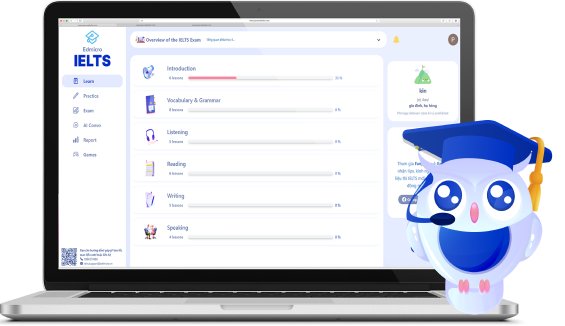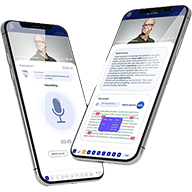Bài tập câu bị động đặc biệt giúp bạn củng cố lại lý thuyết, nắm vững cách sử dụng và chia đúng công thức. Bài viết này sẽ hệ thống lại các dạng câu bị động đặc biệt và cung cấp các bài tập để bạn thực hành.
Bài tập về câu bị động đặc biệt
Từ công thức phía trên, hãy hoàn thành bài tập câu bị động dạng đặc biệt sau.

Bài tập 1: Chuyển các câu sau sang dạng bị động (Dạng bị động có 2 tân ngữ)
1. He sent the girl a letter.
→ _________________________________
→ _________________________________
2. My parents bought me a new laptop for my graduation.
→ _________________________________
→ _________________________________
3. The doctor prescribed the patient a new medication.
→ _________________________________
→ _________________________________
4. They will pay you $500.
→ _________________________________
→ ________________________________
5. The company gave its employees bonuses.
→ _________________________________
→ _________________________________
6. The teacher assigned the students a challenging project.
→ _________________________________
→ _________________________________
7. The government offered the farmers financial assistance.
→ _________________________________
→ _________________________________
8. The manager handed the employees their performance reviews.
→ _________________________________
→ _________________________________
9. The teacher will announce the results of the competition to the students.
→ _________________________________
→ _________________________________
10. The chef prepared the guests a delicious three-course meal.
→ _________________________________
→ _________________________________
ĐÁP ÁN
1. A letter was sent to the girl by him.
The girl was sent a letter.
2. A new laptop was bought for me for my graduation by my parents.
I was bought a new laptop for my graduation by my parents.
3. A new medication was prescribed to the patient by the doctor.
The patient was prescribed a new medication by the doctor.
4. $500 will be paid to you by them.
You will be paid $500 by them.
5. Bonuses were given to the employees by the company.
The employees were given bonuses by the company.
6. A challenging project was assigned to the students by the teacher.
The students were assigned a challenging project by the teacher.
7. Financial assistance was offered to the farmers by the government.
The farmers were offered financial assistance by the government.
8. Performance reviews were handed to the employees by the manager.
The employees were handed performance reviews by the manager.
9. An announcement of the competition results will be made to the students by the teacher.
The results of the competition will be announced to the students by the teacher.
10. The guests were served a delicious three-course meal by the chef.
A delicious three-course meal was served to the guests by the chef.
Bài tập 2: Chuyển các câu sau sang dạng bị động (Dạng bị động tường thuật)
1. He said that he didn’t have any plans for the weekend.
→ _________________________________
2. They told us that the meeting had been rescheduled to next month.
→ _________________________________
3. The spokesperson said that the company would launch a new product soon.
→ _________________________________
4. She said that she might consider the job offer.
→ _________________________________
5. He told me that he had already finished his assignment.
→ _________________________________
6.They said that the soldiers surrendered to the enemy.
→ _________________________________
7. People know that the man put up with his wife too much.
→ _________________________________
ĐÁP ÁN
- It was said by him that he didn’t have any plans for the weekend.
- We were told by them that the meeting had been rescheduled to next month.
- The company was said to launch a new product soon by the spokesperson.
- She was said to consider the job offer.
- It was told to me that he had already finished his assignment.
- The soldiers were said to surrender to the enemy.
- The man is known to put up with his wife too much.
Bài tập 3: Chuyển các câu sau sang dạng bị động (Dạng bị động với have, get, make, let)

- I have my assistant handle all my appointments.
→ _________________________________
- She got a mechanic to fix her car.
→ _________________________________
- He got a professional cleaner to clean his house.
→ _________________________________
- They have a cleaning service clean their house every week.
→ _________________________________
- The company has an IT specialist manage their computer systems.
→ _________________________________
- She got a tailor to alter her dress.
→ _________________________________
- She has a personal trainer guide her workouts.
→ _________________________________
- He got a cobbler to repair his shoes.
→ _________________________________
- She made her son apologize to his friend for the misunderstanding.
→ _________________________________
- She let her friend borrow her car for the weekend.
→ _________________________________
- They made the kids finish their homework before watching TV.
→ _________________________________
- The parents let their children decide what to have for dinner.
→ _________________________________
ĐÁP ÁN
- I have all my appointments handled by my assistant.
- She got her car fixed by a mechanic.
- He got his house cleaned by a professional cleaner.
- They have their house cleaned by a cleaning service every week.
- The company has their computer systems managed by an IT specialist.
- She got her dress altered by a tailor.
- She has her workouts guided by a personal trainer.
- He got his shoes repaired by a cobbler.
- Her son was made to apologize to his friend for the misunderstanding.
- Her friend was allowed to borrow her car for the weekend.
- The kids were made to finish their homework before watching TV.
- Their children were allowed to decide what to have for dinner by the parents.
Bài tập 4: Chuyển các câu sau sang dạng bị động
- She recommended that he take the early flight for better availability.
→ _________________________________
- It is important for students to manage their time wisely.
→ _________________________________
- She saw her neighbor planting beautiful flowers in the garden.
→ _________________________________
- You can visit the museum on weekends.
→ _________________________________
- They suggested that we should visit the museum during our trip.
→ _________________________________
- We should water the plants regularly to keep them healthy.
→ _________________________________
- We watched the children play in the park.
→ _________________________________
ĐÁP ÁN
- It was recommended that the early flight should be taken by him for better availability.
- It is important for student’s time to be managed wisely.
- Her neighbor was seen planting beautiful flowers in the garden.
- The museum can be visited on weekends.
- It is suggested that the museum should be visited during our trip.
- The plants should be watered regularly to be healthy by them.
- The children were watched to play in the park
Các dạng câu bị động đặc biệt
Dưới đây là công thức của các dạng câu bị động đặc biệt.
Dạng câu bị động có 2 tân ngữ
| Chủ động | S + V + O (người) + something |
| Bị động | Cách 1: S (người) + be + VpII+ O (vật) + (by + O) Cách 2: S (vật) + be + VpII + giới từ + O (người) + (by + O) |
Ví dụ: They made their teacher a thank-you card. (Họ đã làm một lá thư cảm ơn cho giáo viên.)
→ The teacher was made a thank-you card by them.
→ A thank-you card was made for the teacher by them.
Câu bị động có động từ kết hợp với V-ing
Các loại động từ luôn đi kèm V-ing là các động từ chỉ cảm xúc, cảm giác (enjoy, like, love, dislike, hate, detest, …); các động từ chỉ quá trình (begin, start, finish, end, …) và một số động từ khác: consider, remember, forget, understand, imagine,…
| Bị động | S + V + being + VpII |
Ví dụ: He dislikes being interrupted while speaking. (Anh ấy không thích bị gián đoạn khi đang nói.)
XEM THÊM: Bị Động Với Động Từ Khuyết Thiếu: Lý Thuyết Và Bài Tập Chi Tiết
Dạng bị động của câu có động từ tri giác

- Tri giác về toàn bộ hành động
| Chủ động | S + see, hear, watch,… + Sb + V |
| Bị động | Sb + be + seen, heard, watched,… + to V + (by + O) |
Ví dụ: He saw his friend cross the street safely. (Anh ấy nhìn thấy người bạn của mình băng qua đường một cách an toàn.)
→ His friend was seen to cross the street safely.
- Tri giác một phần hành động
| Chủ động | S + see, hear, watch,… + Sb + V-ing |
| Bị động | Sb + be + seen, heard, watched,… + V-ing + (by + O) |
Ví dụ: I heard the children singing in the school choir. (Tôi nghe thấy các em nhỏ đang hát trong đội hợp xướng của trường.)
→ The children is heard singing in the school choir.
Câu bị động dạng mệnh lệnh
| Chủ động | It’s one’s duty to + V | It’s necessary to + V | Verb + Object |
| Bị động | S + to be + supposed to + V | S + must/should + be + V2/ed | S + must/should + be + V2/ed |
Ví dụ:
- It’s necessary to wear protective gear in the laboratory. (Việc đeo đồ bảo hộ trong phòng thí nghiệm là cần thiết.)
→ Protective gear should be wore in the laboratory.
- Please turn off your mobile phones during the meeting. (Vui lòng tắt điện thoại di động của bạn trong cuộc họp.)
→ Your mobile phones should be turned off during the meeting.
Dạng câu bị động yêu cầu, nhờ vả
| Chủ động | S + have + sb + V | S + get + sb + to + V |
| Bị động | S + have + sth + V2/ed | S + get + sth + VpII |
Ví dụ:
- I have my friend proofread my essays before submitting them. (Tôi đã nhờ bạn đọc kiểm tra bài luận của tôi trước khi nộp.)
→ I have my essays proofread by my friend before being submitted.
Câu bị động gợi ý, yêu cầu
| Chủ động | S + suggest/require/request/recommend… + that + S + (should) + V |
| Bị động | It + be + suggested/ required/ requested/recommended… + that + something + be + VpII |
Ví dụ:The doctor recommends that the patient should take the prescribed medication.
(Bác sĩ khuyến cáo rằng bệnh nhân nên uống thuốc được kê đơn.)
→ It was recommended by the doctor that the patient take the prescribed medication.
Dạng câu bị động với chủ ngữ giả
| Chủ động | It + be + adj + for sb + to V |
| Bị động | It + be + adj + for sth + to + be V3 |
Ví dụ: It is challenging for beginners to learn a new language.
(Nó khá khó khăn cho người mới bắt đầu để học một ngôn ngữ mới.)
→ It is challenging for a new language to be learned by beginners.
XEM THÊM: Sách Ngữ Pháp Tiếng Anh Đầy Đủ Nhất Cho Người Mới Bắt Đầu
Câu bị động với “make”, “let”
| Chủ động | S + make + sb + V | S + let + sb + V-inf |
| Bị động | S + to be + made + to + V | Let + sb/sth + be V2/ed S + be allowed to V |
Ví dụ: She makes her students memorize important historical dates. (Cô ấy bắt học sinh nhớ các ngày lịch sử quan trọng.)
→ Her students were made to memorize important historical dates by her.
Dạng bị động tường thuật
| Chủ động | S + said/told/…. that + CLAUSE |
| Bị động | – Cách 1: It + is/was said that + CLAUSE – Cách 2: S + tobe + said + to Verb/to have PII/tobe adj + O. Lưu ý: – Nếu 2 vế của câu chủ động cùng thì động từ với nhau, thì khi chuyển sang câu bị động phải dùng là to Verb. – Nếu 2 vế của câu chủ động lệch thì động từ với nhau, thì khi chuyển sang câu bị động phải dùng là to have PII. |
Ví dụ: They said that the concert was fantastic. (Họ nói rằng buổi hòa nhạc thật tuyệt vời.)
→ It was said by them that the concert was fantastic.
→ The concert was said to have been fantastic by them.
Dạng bị động với động từ khuyết thiếu
| Chủ động | S + should/ have to/ must/ can… + V + O |
| Bị động | S + should/ have to/ must/ can… + be + VpII + by + O |
Ví dụ: I must call my parents to let them know I arrived safely.
(Tôi phải gọi điện cho bố mẹ để họ biết tôi đã đến an toàn.)
→ My parents must be called for to know I arrived safely.
Trên đây là các bài tập câu bị động đặc biệt. Hy vọng bạn có thể áp dụng các công thức để hoàn thành tốt các bài tập. Bạn có thể xem thêm các bài viết khác về câu bị động trên website Edmicro IELTS.
XEM THÊM:











